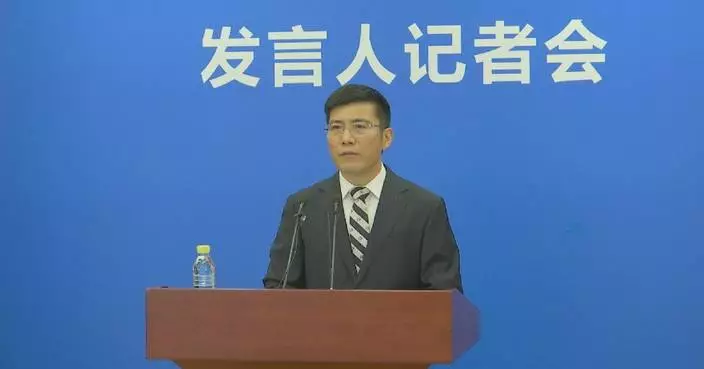Chinese authorities on Friday released revised rules on foreign investors' strategic investment in listed companies in a move to encourage foreign investors to make long-term and value investment in the country.
The revised rules, jointly released by six government departments, including the Ministry of Commerce and the China Securities Regulatory Commission, allow foreign natural persons to make strategic investment in listed companies, a change from the old rules that only allowed foreign legal persons or organizations to make such investment.
Capital requirement is also lowered under the new rules for foreign investors that do not become the controlling shareholders in listed firms. The latest capital requirement will be no less than 50 million U.S. dollars in total actual assets or no less than 300 million U.S. dollars in total managed actual assets.
The new rules add tender offers as an extra option to make strategic investment. In the past, the only available options were private placements and share transfer agreements.
For foreign investors intending to invest through the options of private placements or tender offers, they will be allowed to use shares of non-listed overseas companies as consideration shares for acquisition payment.
The new rules also ease the requirements on the shareholding ratio and the lock-up period. The shareholding ratio requirement is scrapped for foreign investors making investment through private placements, while the ratio requirements for the options of tender offers and share transfer agreements are lowered to five percent from the previous 10 percent.
In order to encourage medium- and long-term investment, the requirement on lock-up period for acquired shares should be no shorter than a 12-month period under the new rules. This is reduced from no shorter than three years previously.
The relevant officials of the six government departments on Friday jointly held a press conference on the revised rules. They said that after these new rules come into effect on Dec 2, it is essential to enhance coordination with systems such as security and antitrust reviews while facilitating procedures for foreign enterprises.
With the expansion of openness, according to them, it is also vital to effectively plug management loopholes, prevent and mitigate risks, and safeguard the national security.
The efforts will include strengthening the responsibilities of intermediary institutions, specifying that investors can make compliance commitments during information disclosure, aligning with the foreign investment security review system and antitrust review regulations, and introducing additional administrative penalty provisions for the competent commercial departments.
Meanwhile, the implementation of the foreign investment law has already comprehensively abolished the approval and filing requirements by the competent commercial departments for the establishment and changes of foreign enterprises.
With the introduction of the new rules, foreign investors no longer need to seek approval from the commercial departments or obtain consent for strategic investments in listed firms.

China revises rules to ease foreign strategic investment in listed firms









